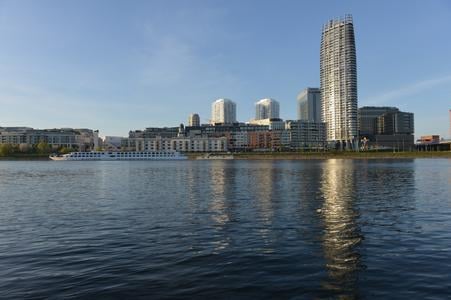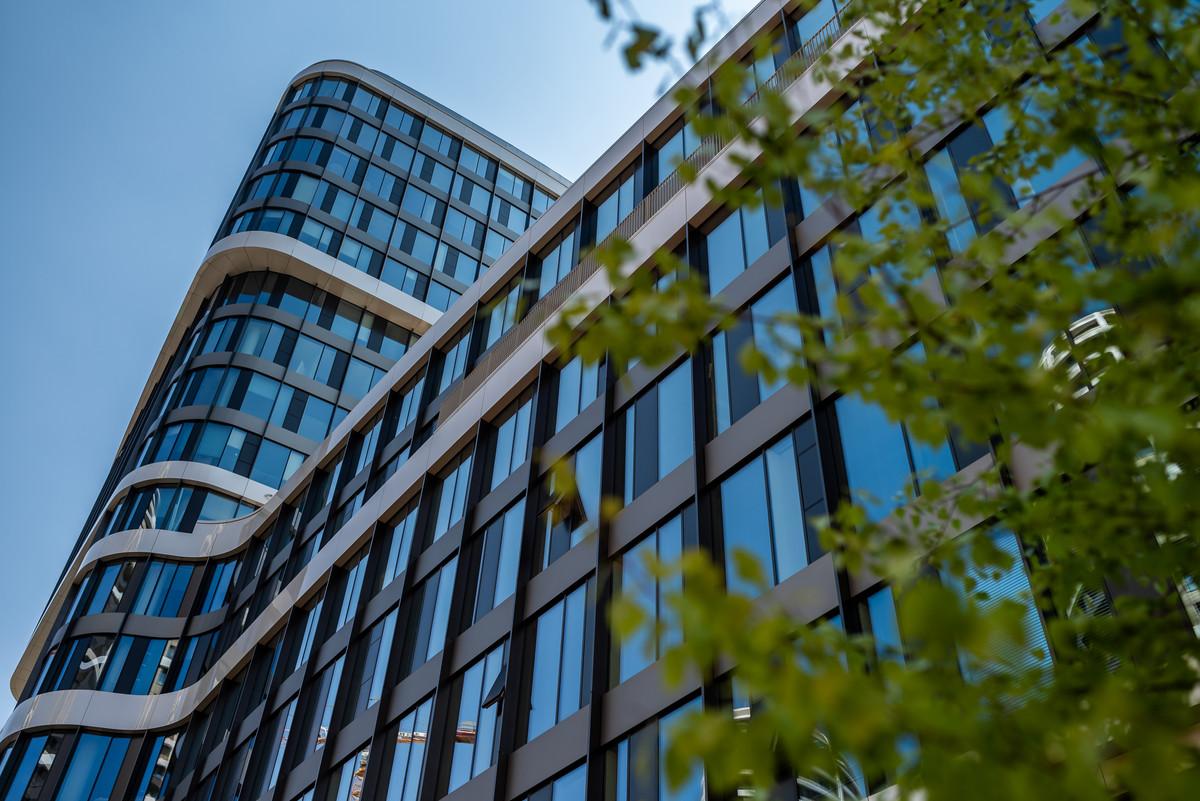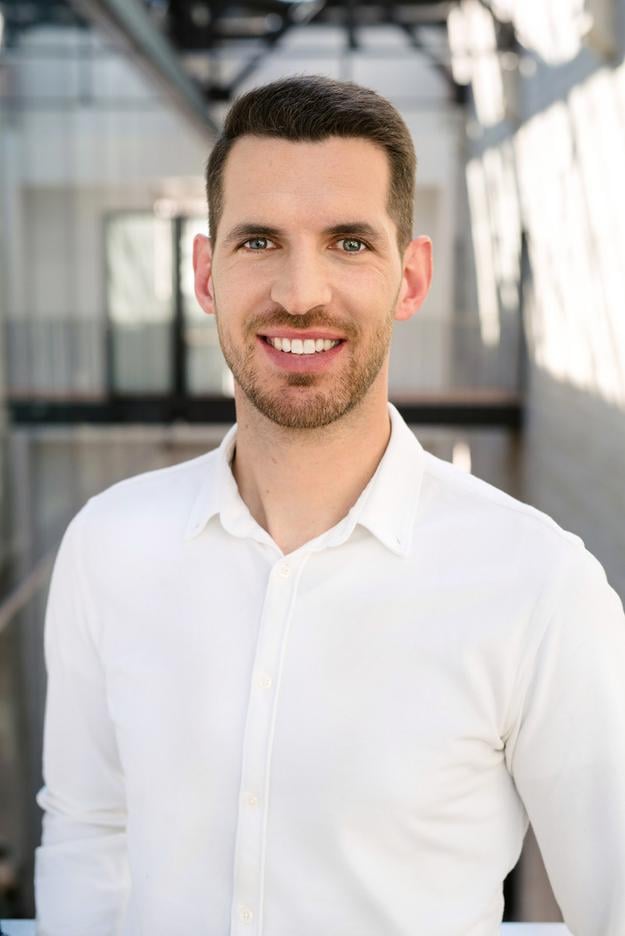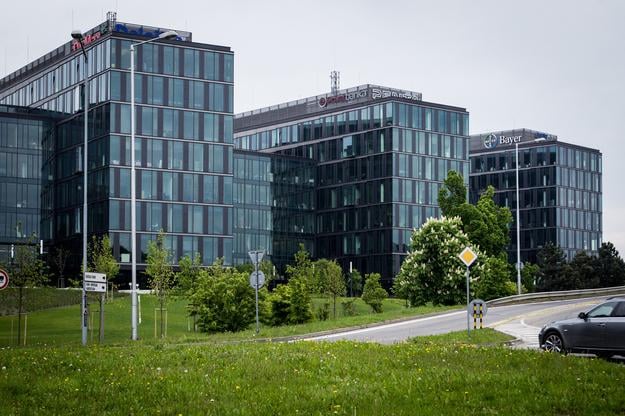Covid-19 continues to cast a shadow across the office market in Bratislava, despite the pandemic having officially ended almost two years ago.
Many companies are downsizing in terms of rented premises, as their workers have not fully returned to the office – meaning vacancy rates remain high.
Alto Real Estate
Alto Real Estate is a development company founded by Jozef Oravkin, one of the founding partners of Penta Real Estate, in 2021 after he left Penta Real Estate. As part of the settlement, he took on several assets, including Sky Park Offices and Digital Park, and people. Alto Real Estate focuses on high-quality and sustainable developments. As well as building new residential and office premises, it is engaged in administration and renting of offices and continues activities started at Penta. Its portfolio includes offices at Sky Park Offices, part of which is the historical Jurkovičova heating plant building, and CBC offices, both on the edge of the historical city centre, as well as Digital Park 1 and 2 in Petržalka, totalling more than 120,000 m2 of rentable office space.
Landlords are adopting a variety of strategies to keep their properties fully leased. Alto Real Estate is betting on tenant-focused customer care to help companies bring employees back to the office – and keep them there.
“We aim to bring the comfort of a living room into the office so that people feel at ease in their work environment,” said Marcel Daško, Head of Asset Management at Alto Real Estate, in an interview with The Slovak Spectator. He noted that investing in tenant satisfaction pays off, as retaining long-term clients is more cost-effective than constantly seeking new ones.
“It’s not just about the costs of acquiring new tenants,” Daško added. “There are also significant expenses involved in customizing office spaces to meet their specific needs.”
The Slovak Spectator spoke with Daško about the latest trends on the office market, requirements for tenants, his company’s plans, and more.
What is the current situation in the office market?
It’s not ideal at the moment. One factor affecting the market is the limited number of new foreign companies coming to Slovakia. In the past, it was common for new companies to enter the market, but this is no longer the case. At the same time, firms already here are downsizing, especially those that operate shared service centres. Instead of large office spaces, they are looking for smaller units in new buildings.
The pandemic has played a significant role in this, bringing new working models such as home office and hybrid working. These changes have been shown to work, and companies are now placing more emphasis on efficiency and optimising their space. Therefore, when relocating, they prefer smaller and more flexible offices better suited to their current needs.

IBM, Orange, and Henkel have recently moved their shared service centres into brand new premises.
Exactly – these clients have just relocated. Moreover, such clients typically sign long-term contracts, often for 10 years. Since no new clients of this kind are expected to enter the market within that period, competition for such clients in the office market becomes intense. One consequence is downward pressure on rental prices.
In the last quarter of last year, the vacancy rate in Bratislava was 12.57 percent, according to market analysts. Is this a high or low rate? The ideal vacancy rate is generally considered to be around 5-10 percent.
The situation in Bratislava is uneven. While there is an excess of lower-category offices, there are actually not enough of the A+ category offices in which Alto Real Estate operates. And future new supply is expected to be low, with just one or two new buildings due to be completed during the next one to four years. So, in this period it is more likely clients will move from existing buildings to other existing buildings. Regarding our buildings’ occupancy, we are at a level of over 90 percent. This means that we are above the market average and successfully filling vacant spaces.
What do you put this down to?
We see several factors behind this success – the prime locations of our buildings, their distinctive architecture, and our focus on customer care.
All our office buildings are well located. Sky Park Offices are part of the Sky Park project built as part of the development of the new Bratislava downtown in the Nivy district on the edge of the historical centre. The CBC offices, which are established office buildings on Karadžičova Street which we acquired from Tatra Asset Management, are in the same district. And Digital Park in Petržalka is next to the popular Aupark shopping centre, with excellent excess and plenty of parking opportunities – something which is not common in terms of office premises.
We also pay extra attention to the architecture of our buildings and the quality of surrounding public spaces. And it pays off. An example of this is Digital Park, whose first phase was completed 17 years ago. It was designed by Cigler Marani Architects and, after completion, won several architectural awards. Its design is timeless, and although it was built some time ago, it still looks very modern today and successfully competes with new office buildings. It is also important that we invest regularly into the maintenance and improvement of our office buildings. Our ambition is that, through our customer care, our tenants’ employees have the same experience as they have in their living rooms.
Could you be more specific?
We are introducing new services in our buildings – such as fitness centres, physiotherapy studios, and massage studios – so that employees of our tenants can conveniently engage in leisure activities before or after work. If someone enjoys running, they can do so right here. We even provide trainers and organise group runs as community-building activities. These are just some of the ways we’re helping companies motivate their employees to return to the office.
Another valuable service is childcare. Private kindergartens are already available in both Sky Park and Digital Park.
This is the kind of added value we aim to build on – not only supporting our tenants, but also enhancing the everyday lives of their employees. Having the ability to easily fit in leisure or wellness activities and care for their families around the workday is one example of how we’re creating a more attractive and supportive office environment.
Do tenants have greater demands these days?
Tenants have been paying greater attention to ESG, which has become part of their corporate culture, especially in the case of companies with parent companies abroad. For example, we have arranged that all electricity supplied to our offices will be green. To save energy and tenant costs, we are carrying out energy audits in all our buildings.
The outcome should include both specific steps towards carbon neutrality and concrete measures aimed at reducing energy consumption. Sometime in the second half of the year, we will produce detailed plans for the future.
Alto Real Estate is also working on improving external premises so tenants’ employees can work outside, eat lunch they have brought with them or even have a barbecue.
All this helps us to successfully re-negotiate and extend rental contacts. Our rate is at 90 percent. For example, Pixel Federation has been at Digital Park for years – they are growing together with us.
Do you have any new office projects in the pipeline?
Alto currently has no office projects at a stage suitable for presentation. It has purchased the land next to Sky Park, formerly the site of the temporary bus station, but no decision has been made yet regarding its future use.
Are there any new trends in the office sector?
One of interesting new trends, which Alto Real Estate has also embraced – albeit on a small scale – is the concept of flexible offices.
Could you explain this concept?
Small businesses, individuals, and small teams and startups don’t want to commit to a lease of five years or longer, they are often in the phase of trying to launch their business and need flexibility. We strive to meet the needs of such companies, and each of our projects has a flexible office concept.
In these spaces, clients won’t have to commit to long-term contracts but can opt for short-term arrangements instead. They will have ready-to-use offices without the need for significant investment while having access to essential services like a shared kitchen and meeting room.
This is not a traditional co-working space where everyone works in the same room, primarily for socialisation and networking. Instead, these are small office units, for example from 20 to 150 square metres, tailored for independent work. We plan to establish them in Digital Park and CBC.



 Sky Park Offices (source: Alto Real Estate)
Sky Park Offices (source: Alto Real Estate)
 Marcel Daško (source: Alto Real Estate)
Marcel Daško (source: Alto Real Estate)
 Digital Park in Bratislava's Petržalka (source: Jozef Jakubčo)
Digital Park in Bratislava's Petržalka (source: Jozef Jakubčo)